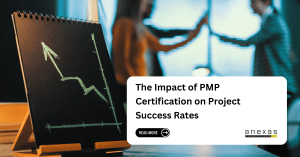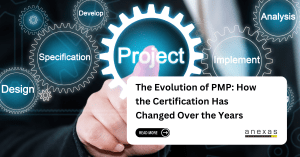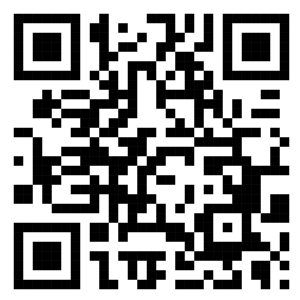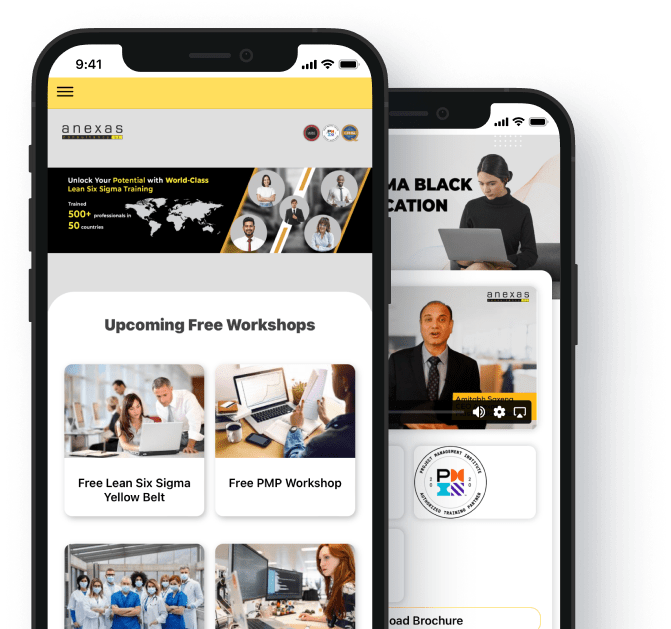Introduction
Brief Overview of PMP® Certification
The PMP® (Project Management Professional) certification, offered by the Project Management Institute (PMI®), is one of the most prestigious and recognized credentials in the field of project management worldwide. It plays a crucial role in the global job market, providing professionals with the skills and knowledge to effectively manage projects across industries. For organizations, PMP®-certified professionals are seen as qualified experts capable of leading successful projects while adhering to best practices, standards, and methodologies. As businesses increasingly rely on skilled project managers to ensure that initiatives are completed on time, within budget, and to scope, the importance of PMP® certification has grown tremendously. The PMP® certification evolution is not only a reflection of the changing needs of the job market but also of the growing complexity of projects and the growing demand for professionals who can manage them efficiently.
One of the primary purposes of the PMP® certification has been to establish a standardized framework for project management. Initially, project management was often seen as an unstructured discipline, but with the creation of PMP®, PMI® helped establish common language, processes, and frameworks that project managers could follow. This structured approach has become a benchmark for project management excellence, ensuring that organizations and teams have a clear understanding of the roles, responsibilities, and procedures involved in successful project execution.
Purpose of the Post
The goal of this post is to provide a comprehensive look at the history of PMP® certification changes and examine the evolution of PMP® certification over time. From its modest beginnings to its current status as the gold standard in project management certifications, the PMP® certification history and changes showcase how the credential has adapted to meet the needs of the ever-changing project management landscape. This post will dive deep into how PMP® certification has evolved, detailing the key PMP® certification updates and changes that have taken place over the years, and will provide insight into the PMP® certification evolution timeline. Additionally, we will explore the impact of PMP® certification changes on professionals and the project management industry as a whole. The PMP® exam changes history has been marked by significant updates that reflect global trends, technological advancements, and the shift from traditional project management to more modern, agile methods. By looking at the PMP® certification over the years, we can understand how PMI’s efforts to refine and update the certification have helped shape the transformation of PMP® certification into what it is today. The changes in PMP® exam over time highlight the adaptability of the certification process, ensuring that it remains relevant and impactful. Finally, the post will explore the past and present PMP® certification, shedding light on how PMP® certification has developed and how it continues to evolve in response to the demands of the global business environment.
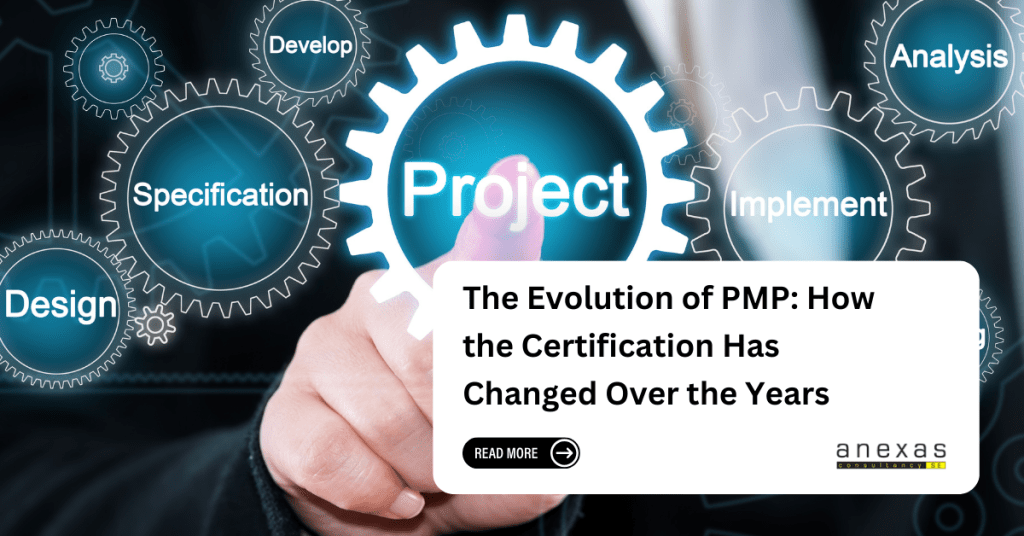
The Birth of PMP®: The Foundation
Origin of PMP® Certification
The PMP® (Project Management Professional) certification was introduced by the Project Management Institute (PMI®) in 1984, marking the beginning of a standardized approach to project management. As the business world rapidly evolved during the 1980s, there was a growing need for project management practices that were formalized and standardized. In the early 1980s, project management was a relatively unstructured field, with professionals often relying on ad hoc methods to manage projects. Recognizing the need for a globally accepted standard, PMI® developed the PMP® certification, aiming to create a credential that would signify expertise in project management across industries worldwide. The history of PMP® certification changes began with a commitment to providing clear, structured guidelines to ensure that project managers had the skills and knowledge to lead successful projects.
Initial Requirements for PMP® Certification
At its inception, the PMP® had specific requirements that emphasized both education and practical experience in project management. To qualify for the certification, candidates needed a combination of educational background and hands-on project management experience. These early requirements ensured that only individuals with a solid understanding of project management concepts and real-world experience could pursue the certification. The focus of the early PMP® exam was primarily on project management basics, ensuring that candidates had foundational knowledge in core areas such as project initiation, planning, execution, and closure. The exam was designed to assess a candidate’s understanding of basic project management principles, offering a structured approach to managing projects that could be universally applied.
First PMP® Exam
The first PMP® exam was a significant milestone in the history of the certification. The format was relatively simple compared to today’s exam, focusing on multiple-choice questions that tested candidates on the basic principles of project management. However, early candidates faced challenges in understanding the format and scope of the exam. PMI®, too, was refining the exam structure and the certification process as it set out to establish a global standard. This early phase of the PMP certification process helped set the foundation for future improvements and developments, as PMI® continuously worked to refine the PMP® exam changes history based on feedback and the evolving needs of the project management industry.
First Major Update: The 1990s
Growth of the PMP® Program
As the demand for structured project management practices grew in the 1990s, the PMP® program gained significant traction. The global demand for standardized project management practices expanded rapidly as organizations realized the need for skilled project managers to lead increasingly complex projects. During this period, PMI® experienced substantial growth, and the PMP® certification became more widely recognized across various industries worldwide. The certification’s growing recognition led to an expansion of PMI’s membership, and the program reached a more global audience, reflecting the increasing importance of project management across different sectors. The PMP® certification evolution timeline during this time marked the beginning of its widespread adoption and recognition as a critical credential for project managers globally.
Changes to the PMP® Exam
In the 1990s, the PMP® exam evolved to reflect a deeper understanding of project management. The exam introduced more structured processes, placing greater emphasis on essential elements such as risk management, time management, cost management, and quality management. These changes signified a shift toward more detailed, process-oriented approaches to managing projects. The scope of the exam broadened to include a more comprehensive set of knowledge areas, ensuring that candidates were prepared for the increasingly complex nature of modern projects. This update reflected the growing maturity of the field and the need for project managers to be equipped with a more robust skill set to handle diverse project challenges.
Impact of the 1996 PMBOK Guide
A pivotal moment in the evolution of PMP® certification over time occurred in 1996 with the release of the first edition of the PMBOK Guide (Project Management Body of Knowledge). This guide became the foundational document for PMP exam content, providing standardized processes, terminology, and practices that would serve as the bedrock for future exams. The PMBOK Guide offered a structured, process-based approach to project management, which was a key shift from earlier, more generalized approaches. The transition from general project management knowledge to more specific process-based guidelines marked a major milestone in the evolution of the PMP® certification, as it established a comprehensive framework for managing projects in a repeatable, methodical manner.
The 2000s: Expansion and Refinement
Professionalization of PMP® Certification
By the 2000s, the PMP® certification had become a recognized symbol of professionalism in the field of project management. As organizations sought to elevate the quality and efficiency of their project management teams, the PMP® certification was increasingly viewed as a mark of excellence and expertise. More companies began to require PMP®-certified professionals as part of their hiring criteria, solidifying the certification’s status as the gold standard in the field. The global expansion of PMP® continued to accelerate during this period, with more companies and professionals across different industries embracing the certification. The PMP® certification updates over the years reflected the increasing recognition of the credential’s importance in driving project success across the globe.
Changes in the PMP® Exam Format
The PMP® exam also underwent significant updates in the 2000s, with a shift toward a more comprehensive and detailed examination format. New question types were introduced to better assess a candidate’s ability to think critically and apply project management concepts in real-world scenarios. The exam began to include a greater focus on leadership and soft skills, alongside traditional technical project management skills. This reflected a growing understanding of the importance of interpersonal skills, communication, and team dynamics in successful project management. With the release of the second edition of the PMBOK Guide in 2000, there was a growing emphasis on the integration of various project management processes, such as scope management and team leadership, into the PMP® exam structure.
The 2010s: Major Overhaul of the PMP® Exam
Globalization and the Rise of Agile
The 2010s witnessed a major overhaul of the PMP® exam, driven by the increasing adoption of Agile methodologies in project management. As organizations increasingly embraced Agile practices to manage projects in dynamic, fast-paced environments, the PMP® exam evolved to incorporate these principles into its structure. The integration of Agile methodologies into the PMP® exam reflected the shift in the industry towards more flexible, adaptive approaches to project management. The PMP® certification history and changes during this period were characterized by a growing emphasis on adapting to changing project landscapes and the need for project managers to be proficient in both traditional and Agile methods.
Introduction of PMP® Exam Changes (2011 and 2015)
In 2011 and 2015, the PMP® exam underwent substantial updates. The exam began to reflect the growing importance of Agile practices in project management, marking a significant shift in the field. The third edition of the PMBOK Guide introduced new knowledge areas, such as stakeholder management and resource management, which were incorporated into the PMP® certification process. The PMP® exam changes history in these years signified a broadening of the certification’s scope, ensuring that it remained relevant in a rapidly evolving industry. The integration of leadership and communication skills into the core of the PMP® structure further enhanced its relevance in modern project management, recognizing the need for project managers to possess a balance of technical and people-oriented skills.
The Latest Update: 2021 and Beyond
Introduction of the 2021 PMP Exam Changes
In 2021, the PMP® exam underwent its most significant overhaul yet, reflecting the shift toward a more Agile, hybrid, and digital approach to project management. The new exam structure introduced three key domains: People, Process, and Business Environment. This change emphasized the importance of leadership and strategic management in modern project environments, focusing on how project managers can lead teams, make decisions, and drive business results. The updated exam also incorporated situational judgment and decision-making elements, addressing the growing need for project managers to be equipped with the skills to navigate complex, rapidly changing project landscapes.
Impact of the New Exam Structure
The impact of PMP® certification changes in 2021 was far-reaching, ensuring that project managers were prepared to handle modern challenges such as digital transformation and agile practices. The integration of new skills into the exam, such as digital transformation and Agile methodologies, helped professionals stay aligned with industry demands and the evolution of project management tools and techniques. These changes further emphasized the transformation of PMP® certification, making it a more versatile credential that equipped project managers with the skills required to excel in both traditional and modern project management environments.
Focus on Diversity and Inclusion
One of the most notable aspects of the 2021 PMP® exam changes was PMI’s focus on diversity and inclusion. The updated exam and certification process incorporated modern leadership techniques that emphasized emotional intelligence, team empowerment, and a more inclusive approach to managing diverse teams. This shift reflected the growing awareness within the project management community of the importance of creating inclusive, supportive environments for teams to thrive. The PMP® certification evolution timeline now includes a strong commitment to fostering diversity, ensuring that PMP-certified professionals are prepared to lead teams in an increasingly diverse and interconnected world.
The Role of PMBOK and Its Evolving Influence
The PMBOK Guide (Project Management Body of Knowledge) has played a pivotal role in shaping the PMP® (Project Management Professional) certification and its evolution over the years. The history of PMP® certification changes has been intricately tied to the updates and revisions of the PMBOK Guide, which serves as the foundation for the PMP® exam. Over time, the PMBOK has undergone multiple revisions to adapt to the changing landscape of project management practices. These revisions reflect not only the shift in industry practices but also the integration of new methodologies, which have progressively influenced PMP® certification updates and changes. As the PMBOK evolved, so did the PMP® certification, making it a more comprehensive and adaptable credential for project management professionals.
PMBOK Guide Evolution
The evolution of PMP® certification over time can be closely traced alongside the changes in the PMBOK Guide. Initially, the PMBOK was centered around traditional project management principles such as scope, time, cost, quality, human resources, communications, risk, procurement, and stakeholder management. However, with the rise of new methodologies and approaches, the PMBOK began to adapt to accommodate these shifts. The introduction of more structured guidelines in later editions brought greater clarity to project management processes. The addition of Agile practices, for example, in the 6th edition of the PMBOK in 2017 marked a major milestone in aligning the PMP exam content with industry trends. This development reflected the growing influence of Agile methodologies and the need for professionals to understand both traditional and Agile project management methods.
Adoption of Hybrid Methodologies
One of the most significant changes in the PMP® certification evolution timeline has been the incorporation of hybrid project management methodologies. As the project management field continued to diversify, with Agile and traditional methods often coexisting within projects, the PMBOK Guide adapted to this reality. The adoption of hybrid methodologies represented a balancing act between the well-established principles of traditional project management and the flexibility of Agile approaches. The PMP® certification updates over the years have mirrored this shift, evolving from a primarily waterfall-based model to a more balanced framework that acknowledges the benefits of Agile, Scrum, and other iterative methodologies.
The impact of PMP® certification changes has been profound, as these updates have ensured that PMP®-certified professionals remain relevant in an ever-changing job market. The PMP® exam now requires candidates to demonstrate an understanding of both traditional project management processes and Agile techniques. This combination of approaches has transformed the PMP® certification, making it more versatile and reflective of modern project management practices. The PMP® exam changes history is marked by this significant integration of hybrid methodologies, which has made the certification more applicable to a wider range of industries and project types.
Balancing Traditional and Evolving Approaches
The transformation of PMP® certification can be seen in the delicate balancing act between traditional project management principles and evolving Agile approaches. The PMBOK Guide has consistently worked to strike this balance, ensuring that PMP® candidates are prepared to manage projects using a variety of methodologies. The adoption of hybrid methods allows professionals to apply the right approach based on the project’s needs, whether it requires the structure of traditional project management or the flexibility of Agile. This duality is now a core part of the past and present PMP® certification, showcasing how PMP® certification has developed into a more inclusive and modern qualification.
In conclusion, the evolution of project management certification is a direct result of the continual adaptation of the PMBOK Guide and the inclusion of hybrid project management methodologies. The changes in the PMP® exam over time reflect a dynamic and responsive approach to the evolving nature of project management. The PMBOK and PMP® certification updates have ensured that project managers are equipped with the knowledge and skills necessary to succeed in diverse project environments. The PMP® certification history and changes are a testament to the certification’s ability to remain relevant, robust, and aligned with industry trends, ensuring its continued importance in the global project management community.
The Future of PMP® Certification
As project management continues to evolve, the future of PMP® certification remains intrinsically tied to the ongoing adaptation of both the certification itself and the Project Management Institute’s (PMI®) broader approach to shaping industry standards. The history of PMP® certification changes demonstrates a continuous effort to meet the demands of modern project management. The evolution of PMP certification over time reflects how the PMP® credential has consistently evolved to stay ahead of industry trends. As technological advances and new business practices reshape the landscape of project management, the PMP® certification is expected to undergo further transformations, ensuring that it remains a relevant and highly valued qualification in the future.
Ongoing Adaptation to Industry Trends
The PMP® certification evolution timeline has shown how the credential has evolved to incorporate the latest advancements in project management practices. This evolution is set to continue with the increasing role of digital tools, artificial intelligence (AI), and automation in the way projects are managed. As businesses become more reliant on technology to streamline operations, PMP®-certified professionals will need to embrace these digital tools to stay competitive. The impact of PMP® certification changes will be seen in how the certification evolves to incorporate knowledge and skills related to digital transformation. Project managers will be expected to manage increasingly complex and data-driven projects, using AI and automation to optimize workflows, improve decision-making, and deliver results faster. The PMP® exam changes history will likely reflect these advances, introducing new exam content that aligns with the integration of AI tools and automation in project management practices.
PMP® and the Changing Workforce
In addition to technological shifts, the PMP® certification updates and changes will continue to focus on addressing the needs of a changing workforce. The demand for project managers who can adapt to different working environments, manage diverse teams, and navigate complex global challenges is growing. As remote work and flexible work arrangements become more prevalent, the role of project managers will shift, requiring them to be more adaptable than ever. The transformation of PMP® certification will likely involve a deeper integration of skills that foster flexibility, collaboration, and leadership in a variety of work settings. The evolution of project management certification will also reflect the increased emphasis on managing virtual teams and using collaborative digital platforms to manage projects across borders.
The Integration of Soft Skills and Emotional Intelligence
The future of project management is also one where soft skills and emotional intelligence (EI) will play an even more critical role. The PMP® certification history and changes have already shown a shift toward incorporating these competencies, and this trend will continue. In the past, PMP® certification focused heavily on technical knowledge and process-based skills. However, the changes in PMP® exam over time have introduced a greater emphasis on leadership, team dynamics, and stakeholder management. As the global workforce becomes more diverse and projects become increasingly complex, project managers will need strong interpersonal and communication skills. The ability to manage conflict, understand team dynamics, and motivate others will be crucial for success. PMI® has already recognized this shift, and the future PMP® exams will likely include more content around EI and other soft skills that are essential for effective leadership in today’s project environments.
Adapting to Global Shifts
As the global project management landscape changes, how PMP® certification has evolved demonstrates the certification’s ability to adapt. With the rise of global teams, diverse cultural considerations, and ever-evolving business practices, the PMP® certification over the years has shown a remarkable ability to stay aligned with industry requirements. The PMP® exam will likely continue to evolve to reflect these broader global shifts. This evolution may include a deeper focus on sustainability, ethical decision-making, and the integration of social responsibility into project management practices. Furthermore, as businesses embrace more agile and hybrid approaches, the PMP certification updates over the years will likely continue to offer flexibility in how it prepares professionals for managing various types of projects across different industries.
In conclusion, the future of PMP® certification will continue to reflect the transformation of PMP® certification in response to the changing technological landscape, the evolving demands of the global workforce, and the increased importance of soft skills. As PMP® certification history and changes have shown, PMI® has consistently adjusted the certification to meet the needs of the project management field. As we look ahead, the PMP® certification will undoubtedly continue to be a hallmark of project management expertise, ensuring that professionals are equipped with the knowledge, skills, and adaptability required to thrive in the ever-changing world of project management.
Conclusion
The history of PMP® certification changes showcases its remarkable journey from its inception in 1984 to its current standing as a globally recognized credential in project management. Over the years, the evolution of PMP® certification has mirrored the transformation of the project management field itself, adapting to technological advancements, evolving methodologies, and shifting global trends. The PMP® certification updates and changes reflect PMI’s commitment to ensuring that the certification remains relevant, comprehensive, and aligned with the needs of today’s diverse and fast-changing project environments.
As we explored the PMP® certification evolution timeline, it’s clear that each phase of the certification’s development has been driven by the need to address new challenges, embrace emerging trends, and incorporate best practices from various industries. From the foundational years of the 1980s to the inclusion of Agile and hybrid methodologies, and most recently, the integration of digital tools and leadership skills, the transformation of PMP® certification has been ongoing and will continue as the field evolves.
The impact of PMP® certification changes on the project management profession has been profound, not only shaping the way project managers are trained and evaluated but also influencing how organizations approach project execution. As the global business landscape continues to evolve, the future of PMP® certification will be shaped by the ongoing demands for flexibility, technological expertise, and the ability to manage diverse teams in an increasingly digital world.
Ultimately, how PMP® certification has developed over the years serves as a testament to its ability to stay relevant and ensure that professionals are equipped with the knowledge and skills necessary to excel in a rapidly evolving industry. Whether you’re just beginning your journey in project management or are a seasoned professional, the past and present PMP® certification offers a pathway to gaining the credibility, recognition, and expertise needed to succeed in today’s complex, global business environment.
FAQ
What is PMP® certification, and why is it important?
PMP® (Project Management Professional) certification is a globally recognized credential awarded by the Project Management Institute (PMI®) that demonstrates a professional’s knowledge and expertise in project management. It is important because it validates a project manager’s skills and experience, helping to open doors to career advancement and higher-paying job opportunities.
How has the PMP® certification evolved over time?
The evolution of PMP® certification over time reflects changes in the project management field, including the incorporation of new methodologies like Agile, updates to the PMBOK Guide, and shifts towards more leadership and people-oriented skills. These updates ensure that the certification stays relevant in a rapidly changing industry.
What are the major changes in PMP® certification since its inception?
Over the years, PMP® certification updates have included changes to the exam format, the introduction of new knowledge areas, and the incorporation of Agile methodologies and hybrid project management approaches. The inclusion of leadership and emotional intelligence has also been a key update.
What is the PMBOK Guide, and how has it influenced the PMP® exam?
The PMBOK Guide (Project Management Body of Knowledge) is a fundamental resource for PMP® certification that outlines industry-standard project management processes. Its editions have evolved to reflect changes in project management practices, and each version of the guide has influenced the PMP® exam changes history, adjusting the exam content to align with new knowledge areas and methodologies.
What is the role of Agile in the evolution of PMP® certification?
As Agile methodologies gained prominence in the 2000s and beyond, PMP® certification updates and changes integrated Agile principles into the exam content, allowing project managers to demonstrate their ability to manage projects using both traditional and Agile approaches, reflecting the growing demand for flexible project management solutions.
How do I stay up to date with PMP® certification changes?
To stay current with PMP® certification updates, professionals can regularly refer to PMI®’s website, attend PMI events and workshops, and keep an eye on changes to the PMBOK Guide. Continuing education and participation in professional development activities also help ensure that you remain informed about the latest trends and updates in project management.
What are the key skills tested in the PMP® exam today?
The PMP® exam now tests a combination of technical project management skills, such as scheduling and budgeting, and people-oriented skills, such as leadership, communication, and stakeholder management. PMP® exam changes history has seen a shift towards more emphasis on leadership and emotional intelligence in recent years.
How does the PMP® certification impact my career?
Holding a PMP® certification can significantly enhance career prospects by demonstrating expertise in project management. It can lead to higher-paying job opportunities, greater recognition in the workplace, and access to leadership roles, as organizations value certified professionals who can manage projects efficiently and effectively.
What are the future trends in PMP® certification?
The future of PMP® certification will likely focus on digital transformation and Agile methodologies, incorporating emerging technologies like AI and automation into project management practices. Additionally, soft skills, such as emotional intelligence and adaptability, will continue to play a crucial role in PMP® certification updates.
How do PMP® certification changes affect current certified professionals?
Certified PMP® professionals are encouraged to stay updated with the latest PMP® certification updates over the years to maintain the value of their certification. PMI® offers resources such as Continuing Certification Requirements (CCR) to help certified professionals stay current and meet evolving industry standards.

